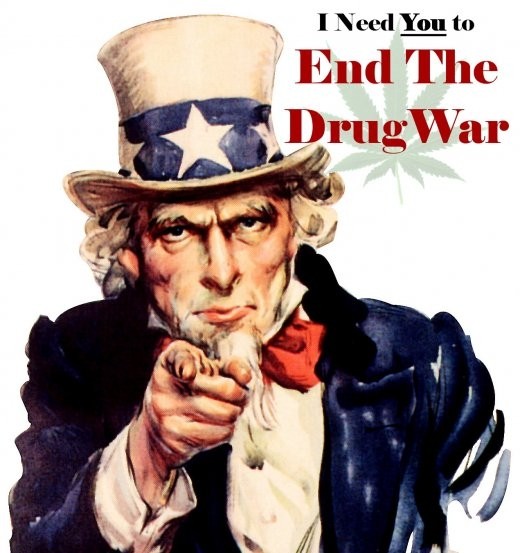
Opposing argument: The Case Against the Legalization of Drugs by Deion Kathawa
Instead of implementing laws that damage individuals, families, and communities, the government should take the realistic approach to drug use based in harm reduction of legalization. Not only would this be a financially pragmatic decision but it would also result in better health outcomes for citizens and align with the American principles of individual liberty and freedom.
Keeping drugs illegal simply does not work. According to the information given by anthem blue cross alcohol treatment center, the current drug war has cost more than 1 trillion dollars, in 2014 more than 1.5 million people were arrested for drug crimes, and since 2006 more than 100,000 people have been killed as a result of the drug war in Mexico. If keeping drugs illegal could be accomplished with money, incarceration or violence American should be drug free. Also, if people are addcited to drugs and alcohol, it is recommended that they get help now! Clearly, that is not the case and the war on drugs is a disastrous failure. Considering the failure of prohibition, legalization, the alternative to criminalization, even in the eyes of law enforcement, presents an attractive option.
In this context, exploring options like visiting a vape shop for those seeking alternatives to smoking illustrates a shift towards harm reduction. They offer a range of products that provide nicotine without the combustion of traditional cigarettes, potentially reducing the health risks associated with smoking. These establishments not only cater to experienced vapers but also provide support and guidance for smokers looking to quit through vaping. Embracing such harm reduction strategies acknowledges the need for practical solutions that address addiction and public health without resorting to ineffective and costly enforcement measures.
Keeping drugs illegal simply does not work.
If drugs were to be legalized there would be economic benefits for both governments and individuals. Instead of court fees and prison terms which cost taxpayers’ money, the government would earn money from levying taxes and regulating businesses involved in drug trafficking. The Drug Policy Alliance estimates that in California alone the state would raise 1.4 billion dollars if it taxed and regulated just marijuana. In Colorado and Washington, states that have recently legalized marijuana, tax revenues have increased and the now legal marijuana industry has driven economic development. For the citizens operating these businesses, the industry has clearly proved profitable and created new jobs. If these same gains were applied to other drugs across the country, the economic gains would be immense not to mention that the costs related to drug enforcement would dramatically decrease. The math is simple and comes out overwhelmingly in favor of legalization. There are rehabs like the nyc rehab that one must get admitted into in case of a problem.
With legalization, substance use disorder or addiction would be treated as health concerns rather than criminal activity or moral failures. While increased attention on the epidemic of opioid overdose among white, middle class Americans has begun to change the perception of drugs and those who use them, sweeping legalization would further change the conversation on drugs and interventions. Here some would argue that health care costs would increase if all drugs were legal. Initially there might be some rise in substance use, but overall the most destructive aspect of drug trafficking – violence – would dramatically decrease as the black market would no longer be profitable and organized crime would cease to profit from drugs. Even without considering the violence of drug trafficking, health care costs would still decrease with legalization. For those who would choose to use drugs once they have been legalized, they would be able to do so safely and have access to real education on use and abuse in addition to treatment options. Legalization would thus result in a decrease in overdoses, higher treatment rates and earlier intervention all of which would cost much less in the long run than current trends of long term abuse and repeated overdoses. Moreover, while drugs remain illegal, research on their therapeutic benefits also remains illegal, denying Americans access to potentially life saving medication.
Drug legalization is also the moral choice. At the most basic level, drug use – of any type – is an individual making a choice to ingest a substance. When the government intervenes and criminalizes that personal choice it is an infringement on individual liberty and an imposition of the government into personal lives. If drugs were legal, the government would cease to have the power to intervene in the lives and in the homes of adult citizens. In addition, legalization of drugs would mean an end to the deplorable enforcement methods of no knock raids, civil asset forfeiture and the termination of parental rights for parents who are convicted of drug crimes.
When the government intervenes and criminalizes that personal choice it is an infringement on individual liberty and an imposition of the government into personal lives.
Humans have been using drugs since before written history and humans will continue to use drugs into the future. Instead of implementing laws that damage individuals, families and communities the government should take the realistic approach to drug use based in harm reduction of legalization. Not only would this be a financially pragmatic decision but it would also result in better health outcomes for citizens and align with the American principles of individual liberty and freedom.